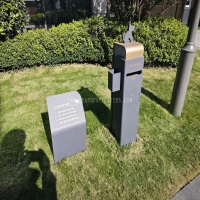Welcome to the website for landscape facilities products and knowledge.
What are the most common industry benchmarks for the cost-effectiveness of these trash cans?
When evaluating the cost-effectiveness of trash cans, industry benchmarks provide critical insights into efficiency, durability, and sustainability. Common metrics include initial purchase cost, lifespan, maintenance expenses, and waste diversion rates. For example, commercial-grade bins often prioritize durability, with benchmarks suggesting a 5-10 year lifespan to justify higher upfront costs. Residential models, meanwhile, focus on affordability and ease of use, with cost-per-use calculations becoming a key benchmark.
Recycling and compost bins add another layer, where cost-effectiveness is measured by contamination rates and participation levels. High-performing bins typically reduce contamination below 10% while maintaining user engagement. Additionally, smart trash cans with sensors or compaction technology are benchmarked by their ROI in reducing collection frequency and labor costs.
Sustainability benchmarks also play a role, such as the percentage of recycled materials used in manufacturing or energy savings from solar-powered compactors. By aligning with these industry standards, businesses and municipalities can optimize waste management budgets while meeting environmental goals.
Related search:

Recommendation
Outdoor cat and dog feces trash can; Community pet trash can; Metal multi-color design